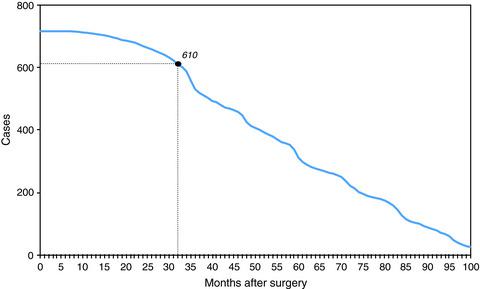当前位置:
X-MOL 学术
›
Cancer Med.
›
论文详情
Our official English website, www.x-mol.net, welcomes your
feedback! (Note: you will need to create a separate account there.)
Machine Learning techniques in breast cancer prognosis prediction: A primary evaluation.
Cancer Medicine ( IF 2.9 ) Pub Date : 2020-03-10 , DOI: 10.1002/cam4.2811 Carlo Boeri 1 , Corrado Chiappa 1 , Federica Galli 1 , Valentina De Berardinis 1 , Laura Bardelli 1 , Giulio Carcano 1 , Francesca Rovera 1
Cancer Medicine ( IF 2.9 ) Pub Date : 2020-03-10 , DOI: 10.1002/cam4.2811 Carlo Boeri 1 , Corrado Chiappa 1 , Federica Galli 1 , Valentina De Berardinis 1 , Laura Bardelli 1 , Giulio Carcano 1 , Francesca Rovera 1
Affiliation

|
More than 750 000 women in Italy are surviving a diagnosis of breast cancer. A large body of literature tells us which characteristics impact the most on their prognosis. However, the prediction of each disease course and then the establishment of a therapeutic plan and follow-up tailored to the patient is still very complicated. In order to address this issue, a multidisciplinary approach has become widely accepted, while the Multigene Signature Panels and the Nottingham Prognostic Index are still discussed options. The current technological resources permit to gather many data for each patient. Machine Learning (ML) allows us to draw on these data, to discover their mutual relations and to esteem the prognosis for the new instances. This study provides a primary evaluation of the application of ML to predict breast cancer prognosis. We analyzed 1021 patients who underwent surgery for breast cancer in our Institute and we included 610 of them. Three outcomes were chosen: cancer recurrence (both loco-regional and systemic) and death from the disease within 32 months. We developed two types of ML models for every outcome (Artificial Neural Network and Support Vector Machine). Each ML algorithm was tested in accuracy (=95.29%-96.86%), sensitivity (=0.35-0.64), specificity (=0.97-0.99), and AUC (=0.804-0.916). These models might become an additional resource to evaluate the prognosis of breast cancer patients in our daily clinical practice. Before that, we should increase their sensitivity, according to literature, by considering a wider population sample with a longer period of follow-up. However, specificity, accuracy, minimal additional costs, and reproducibility are already encouraging.
中文翻译:

机器学习技术在乳腺癌预后预测中的初步评估。
意大利有超过750,000名妇女幸存下来,被诊断出患有乳腺癌。大量文献告诉我们哪些特征对其预后影响最大。但是,对每个疾病病程的预测,然后针对患者量身定制治疗方案和随访仍然非常复杂。为了解决这个问题,多学科方法已被广泛接受,而“多基因签名专家组”和“诺丁汉预后指数”仍在讨论中。当前的技术资源允许为每个患者收集许多数据。机器学习(ML)使我们能够利用这些数据,发现它们之间的相互关系,并尊重新实例的预后。这项研究为ML在预测乳腺癌预后中的应用提供了初步评估。我们在我们的研究所分析了1021例接受了乳腺癌手术的患者,其中包括610例。选择了三个结局:癌症复发(局部和全身)和在32个月内因疾病死亡。我们针对每种结果开发了两种类型的ML模型(人工神经网络和支持向量机)。对每种ML算法进行了准确性(= 95.29%-96.86%),灵敏度(= 0.35-0.64),特异性(= 0.97-0.99)和AUC(= 0.804-0.916)的测试。这些模型可能会成为我们日常临床实践中评估乳腺癌患者预后的额外资源。在此之前,根据文献,我们应该通过考虑更广泛的人群样本和更长的随访时间来提高他们的敏感性。但是,特异性,准确性,最低的额外费用,
更新日期:2020-03-10
中文翻译:

机器学习技术在乳腺癌预后预测中的初步评估。
意大利有超过750,000名妇女幸存下来,被诊断出患有乳腺癌。大量文献告诉我们哪些特征对其预后影响最大。但是,对每个疾病病程的预测,然后针对患者量身定制治疗方案和随访仍然非常复杂。为了解决这个问题,多学科方法已被广泛接受,而“多基因签名专家组”和“诺丁汉预后指数”仍在讨论中。当前的技术资源允许为每个患者收集许多数据。机器学习(ML)使我们能够利用这些数据,发现它们之间的相互关系,并尊重新实例的预后。这项研究为ML在预测乳腺癌预后中的应用提供了初步评估。我们在我们的研究所分析了1021例接受了乳腺癌手术的患者,其中包括610例。选择了三个结局:癌症复发(局部和全身)和在32个月内因疾病死亡。我们针对每种结果开发了两种类型的ML模型(人工神经网络和支持向量机)。对每种ML算法进行了准确性(= 95.29%-96.86%),灵敏度(= 0.35-0.64),特异性(= 0.97-0.99)和AUC(= 0.804-0.916)的测试。这些模型可能会成为我们日常临床实践中评估乳腺癌患者预后的额外资源。在此之前,根据文献,我们应该通过考虑更广泛的人群样本和更长的随访时间来提高他们的敏感性。但是,特异性,准确性,最低的额外费用,











































 京公网安备 11010802027423号
京公网安备 11010802027423号